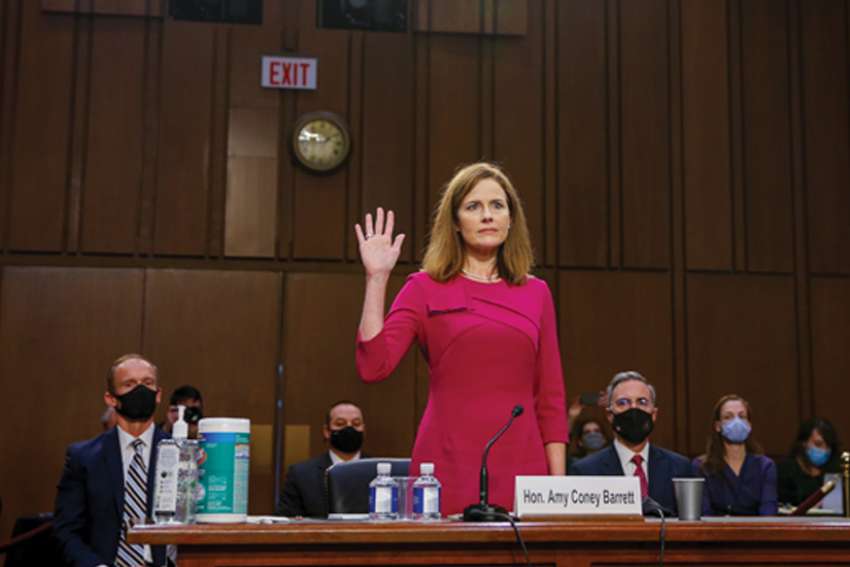Barrett is evasive, they say, refusing to answer senators’ straightforward questions about the agenda she intends to bring to the Supreme Court. Her straightforward answer that she will not prejudge issues that might come before the court is seen as a form of subterfuge. She is power hungry, eager to avoid scrutiny until she has her seat on the bench and can then wreak havoc for the next 30 or 40 years.
Except that nothing in Barrett’s background shows her to be evasive or greedy for power. She is held in the highest esteem by her colleagues, including those who don’t share her legal philosophy.
More at issue is that advocates of judicial activism believe that everyone appointed to the highest court must have a political agenda. As they themselves have an agenda, they are convinced that everyone else has one, too. One cannot simply do as Barrett pledges to do — make decisions based on the text of the U.S. Constitution and established legal precedents.
President Donald Trump has been unabashed in saying he makes judicial appointments to increase conservative power in the courts in the hope that legislation which supports social justice will be tossed out. Both Democrat and Republican senators, along with the media, see the appointment of judges as part of a struggle for power. It makes for political theatre in which conservatives and progressives can each cheer for their own side.
In the eyes of many, the power struggle is over whether to progress or regress. New York Times writer Nicholas Kristof’s article on Barrett was headlined, “Will We Choose the Right Side of History?” The headline says it all — that history has a “right side” which is to be equated with progressive policies. Being on the right side of history is an unstated moral value of progressives; conservative judges are not the only ones who claim the moral high ground.
The late historian Christopher Lasch once asked, “How does it happen that serious people continue to believe in progress, in the face of massive evidence that might have been expected to refute the idea of progress once and for all?” Moral progress for liberals and conservatives is identified with either social or economic progress. Society must “move forward” by enhancing either social equality and personal autonomy or the fulfillment of material desires.
The sham conservatism of right-wing politicians is the faulty belief in trickle-down economics — a rising tide raises all boats. The progressive side, meanwhile, wants to provide equal opportunity to fulfill our insatiable desires. Both sides promise a worldly utopia; both approaches lead to environmental, economic and moral chaos.
The alternative to the ideology of riotous consumerism is a philosophy of limits — moral, economic and environmental limits. Implementing such a philosophy calls for people to live simpler, even ascetic, lives and to adhere to a social morality that respects the common good. Neither conservatives nor liberals advocate a dampening of our desires and a strengthening of personal and societal virtue. Asking people to live with less is not a popular political program.
The Catholic Church affirms the call for greater social and economic equality. It also contends that the most important step toward those goals comes, not through technological improvement, but through the virtue of solidarity. That virtue is not only an individual one, but also one that ought to be defended through the laws of the land.
As for Amy Coney Barrett, one hopes she is not a sham conservative who believes every person can pull themselves up by their bootstraps and that economic growth should have no limits. May she be a real conservative, one who believes in the power of societal virtue, virtue expressed in legislation which seeks to end injustices. To do that, she need not be a judicial activist, only a judge who respects established legal precedents and the dignity of the human person.
(Argan lives in Edmonton.)


